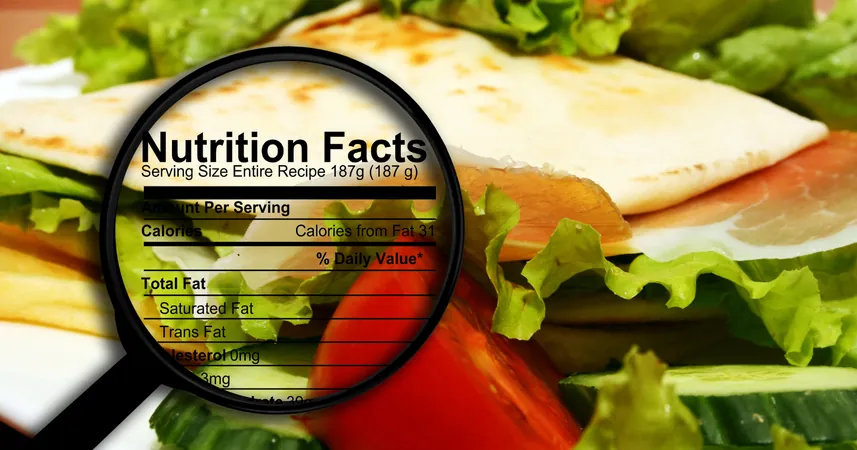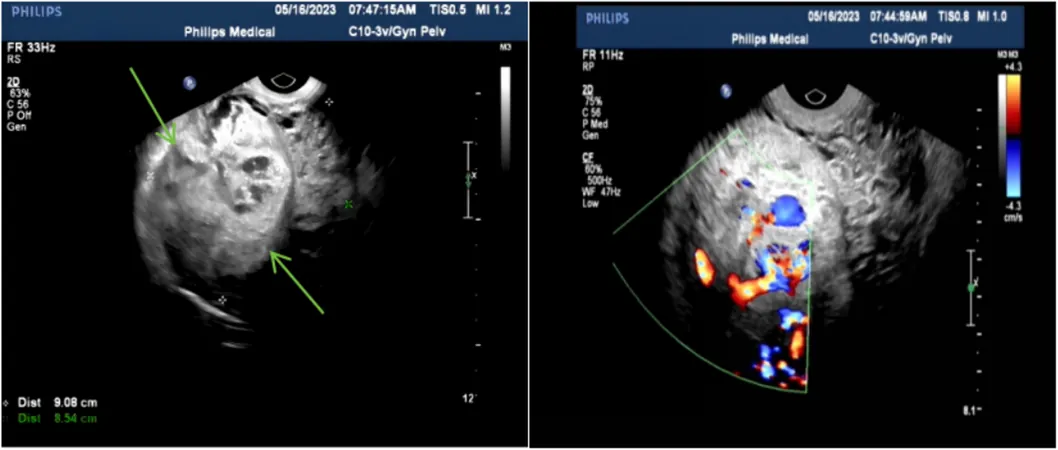
Transform Your Health: How Quickly Can a Plant-Based Diet Lower Cholesterol?
2025-07-13
Author: Wei Ling
Meet Drew Jacobs, a 24-year-old who made a simple switch from a greasy drive-thru breakfast to overnight oats. Little did he know, just four weeks later, his doctor would be ringing him with astonishing news: his cholesterol had dropped significantly. "I thought I was in trouble," he chuckled, recalling the call. When his doctor inquired about his new regimen, he proudly shared his culinary transformation—replacing red meat with legumes, cutting out cheese, and embracing tofu. Drew’s LDL cholesterol took a nosedive by 40 points in just one month, leading him from a mere experiment to a life-changing commitment.
Quick Wins for Heart Health
Drew's story is not a rare occurrence but part of a larger trend gaining traction in the health and nutrition communities. What’s the overarching message? You don’t need years of commitment to the plant-based lifestyle to witness significant health improvements. In fact, measurable changes can start occurring in a matter of weeks.
Cholesterol levels, particularly LDL or ‘bad cholesterol,’ are crucial markers for assessing heart disease risk, with nearly 40% of adults in the U.S. having elevated cholesterol. Traditionally, managing cholesterol has revolved around medication, weight loss, and exercise. However, emerging research suggests that dietary changes can yield even more impressive results.
The Science: How Diet Impacts Cholesterol
Recent studies, including one from the Physicians Committee for Responsible Medicine involving 244 participants on a low-fat, plant-based diet, showed striking results: average LDL levels dropped by 14-20%. Furthermore, a study from the University of Exeter highlighted that just by swapping out meat for mycoprotein—found in products like Quorn—participants could see a 10% reduction in LDL cholesterol in a mere four weeks.
What power lies in these plant-based meals? Plant foods contain zero cholesterol and minimal saturated fat, while being rich in soluble fiber that binds excess cholesterol in the digestive tract, aiding in its removal from the bloodstream. According to the National Lipid Association, a daily intake of just 5 to 10 grams of soluble fiber (roughly equivalent to a cup of cooked lentils and a bowl of oatmeal) can reduce LDL cholesterol by 5 to 11%. Imagine the impact of filling most of your plate with these nutritious foods!
The Ripple Effect of Plant-Based Eating
Lowering cholesterol is just the tip of the iceberg. Adopting a fiber-rich, plant-forward diet can enhance blood pressure, insulin sensitivity, inflammation, and gut health—all critical components of cardiovascular well-being. For those on statins or similar medications, transitioning to a plant-based diet might lessen the required dosage or eliminate the need for medication altogether, though it's crucial to consult with a healthcare professional.
From a broader health perspective, the prospects are enormous. Cardiovascular disease is a leading killer worldwide. Just think of the potential benefits and cost savings from encouraging dietary changes that could reduce this staggering burden.
Your Simple Path to Better Health
You don’t have to flip your life upside down to start benefiting from plant-based eating. Here’s a straightforward plan to help you get started:
1. **Swap Your Proteins**: Aim to replace animal-based proteins with plant-based options at least once a day. Think lentils, tofu, or chickpeas. If burgers are your go-to, try a homemade black bean patty.
2. **Rethink Your Fats**: While not all fats are foes, limit saturated fats found in butter and fatty meats. Embrace heart-healthy fats like avocados, nuts, and olive oil, but remember: moderation is key.
3. **Embrace Fiber as Your Secret Weapon**: Strive for 25-30 grams of fiber daily, focusing on fiber-rich foods like oats, chia seeds, and legumes.
4. **Avoid the ‘Vegan Junk Trap’**: Just because a food is plant-based doesn’t mean it’s healthy. Skip ultra-processed snacks and sugary drinks; focus on whole, recognizable ingredients.
5. **Track Your Progress**: Monitor your cholesterol levels. A quick blood test before and after implementing changes could reveal incredible results—just ask Drew!
And don’t forget to combine your dietary changes with daily physical activity, such as a brisk walk.
Genetics: The Hidden Factor?
While genetics play a role in cholesterol levels, especially for conditions like familial hypercholesterolemia, diet is often the fastest and most cost-effective way to see results—even for those genetically predisposed.
Your Power: Food as Self-Advocacy
In a world where healthcare often feels detached from food choices, embracing meals that lower your cholesterol means taking control of your health. It’s not just about the numbers but about advocating for your body and lowering disease risk—one delicious forkful at a time.




 Brasil (PT)
Brasil (PT)
 Canada (EN)
Canada (EN)
 Chile (ES)
Chile (ES)
 Česko (CS)
Česko (CS)
 대한민국 (KO)
대한민국 (KO)
 España (ES)
España (ES)
 France (FR)
France (FR)
 Hong Kong (EN)
Hong Kong (EN)
 Italia (IT)
Italia (IT)
 日本 (JA)
日本 (JA)
 Magyarország (HU)
Magyarország (HU)
 Norge (NO)
Norge (NO)
 Polska (PL)
Polska (PL)
 Schweiz (DE)
Schweiz (DE)
 Singapore (EN)
Singapore (EN)
 Sverige (SV)
Sverige (SV)
 Suomi (FI)
Suomi (FI)
 Türkiye (TR)
Türkiye (TR)
 الإمارات العربية المتحدة (AR)
الإمارات العربية المتحدة (AR)